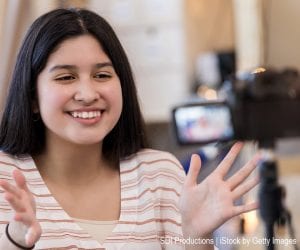The recently released National Climate Assessment highlighted the results of climate research from hundreds of scientists and spoke the message loud and clear that climate change is happening now and the impacts are already upon us. Fire seasons are longer, sea level rise threatens low-lying communities around the world, and storms are growing ever stronger. Luckily, our World of 7 Billion video contest allowed us to see a glimmer of good news through these dire warnings – young people care about climate change and they want to make their voices heard.
In the contest, high school students were tasked with creating a 60 second video illustrating the connection between population growth and one of three global challenges, one of which was climate change. We were impressed by the talent and knowledge we saw in all of the climate videos, but the four winners stood out for their creativity and clear messaging about population’s impact on climate issues. This week, it’s your turn to choose your favorite of the top four climate change videos. “Like” your favorite video (posted in the comments) to cast your vote for “People’s Choice.”
Marius Vaitkevicius, a two-time winner of the World of 7 Billion contest, used expert animation to illustrate the point that as our population grows, so do our emissions. After drawing the viewer in with a bit of humor, Marius skillfully depicts the many causes of greenhouse gas emissions (driving, industry, food production) and then ends on a hopeful note calling for viewers to drive less, recycle more, and use renewables. In his video, “A False Reality,“ Zach Gavin and his group used a fish tank and miniature toys to contrast a “classic American town” today with the same American town in 2150 when, due to sea level rise, the only resident is a lone fish. Skylar Laasko and her group chose to tackle the topic of coral bleaching. Their simple but informative drawings paired with a well-planned script made it easy to understand the connection between more people, more CO2, and the harmful imbalance of PH in our oceans that leads to coral bleaching. Georgia Carroll, in her video, “The Way We Live,” communicates a strong message that in order to protect the eco-systems we depend on, we need to lower both our carbon emissions and our population growth. Her emphasis on strong solutions like investing in sustainable energy and promoting women’s education makes this video both powerful and memorable.
To read more about this year’s contest and results, visit our World of 7 Billion contest page.



